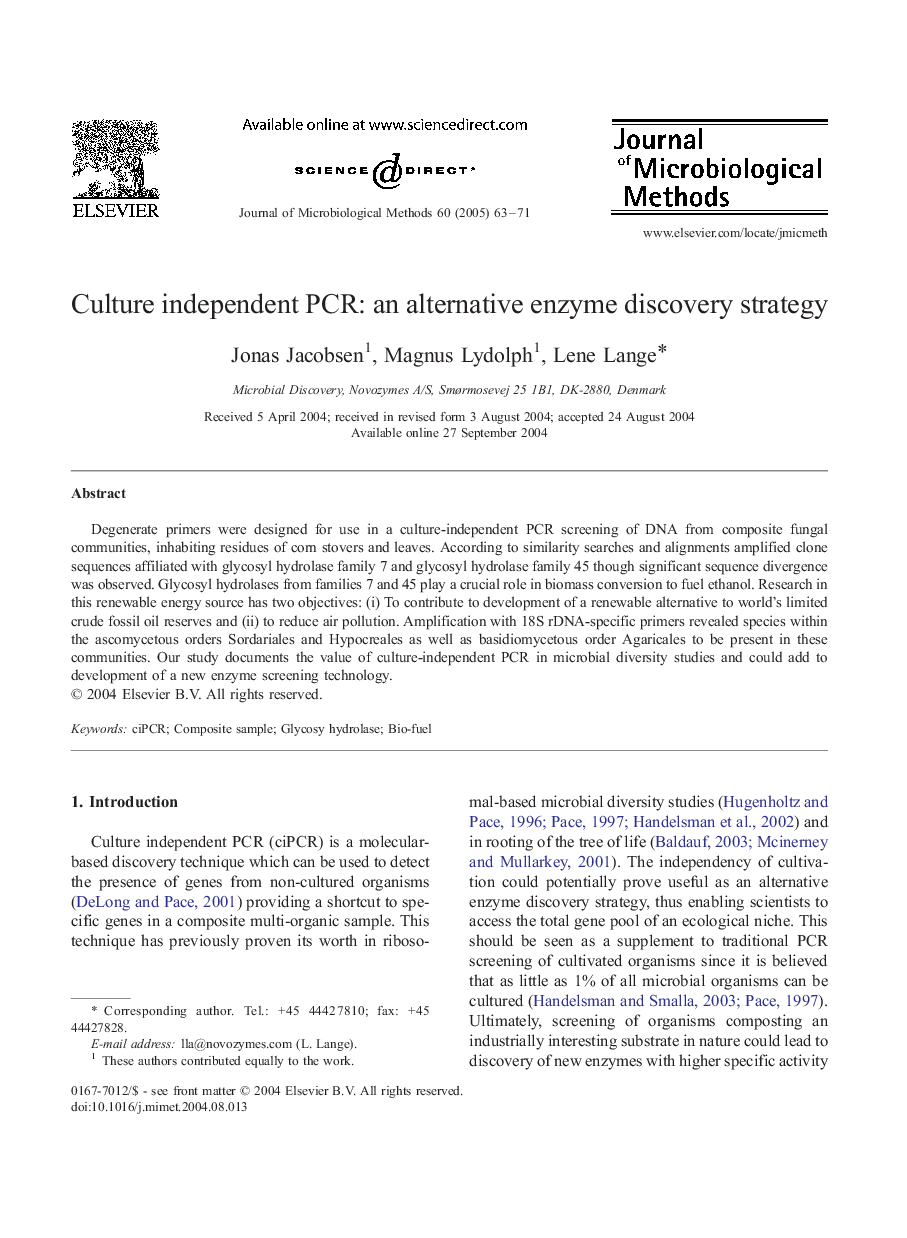| Article ID | Journal | Published Year | Pages | File Type |
|---|---|---|---|---|
| 10890860 | Journal of Microbiological Methods | 2005 | 9 Pages |
Abstract
Degenerate primers were designed for use in a culture-independent PCR screening of DNA from composite fungal communities, inhabiting residues of corn stovers and leaves. According to similarity searches and alignments amplified clone sequences affiliated with glycosyl hydrolase family 7 and glycosyl hydrolase family 45 though significant sequence divergence was observed. Glycosyl hydrolases from families 7 and 45 play a crucial role in biomass conversion to fuel ethanol. Research in this renewable energy source has two objectives: (i) To contribute to development of a renewable alternative to world's limited crude fossil oil reserves and (ii) to reduce air pollution. Amplification with 18S rDNA-specific primers revealed species within the ascomycetous orders Sordariales and Hypocreales as well as basidiomycetous order Agaricales to be present in these communities. Our study documents the value of culture-independent PCR in microbial diversity studies and could add to development of a new enzyme screening technology.
Keywords
Related Topics
Life Sciences
Biochemistry, Genetics and Molecular Biology
Biotechnology
Authors
Jonas Jacobsen, Magnus Lydolph, Lene Lange,
